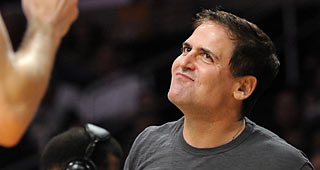Ever since the Dream Team of 1992, basketball has been one of the biggest draws in the Summer Olympics. At the same time, having the sport’s biggest stars competing on a worldwide stage has done wonders for the both the game and its players. The only ones on the outside are the NBA’s owners, which is why they are pushing so hard for a “World Cup of Basketball”.
Under their proposed system, the NBA and FIBA would turn the World Championships into a more high-profile event. Olympic basketball, in turn, would be marginalized as a 23-and-under tournament. However, replacing one unethical middleman in the world of international sports with another is a solution in search of a problem.
The IOC has enriched themselves off the labor of athletes like Usain Bolt, Michael Phelps and LeBron James. NBC is paying $4.4 billion dollars over the next decade for broadcast rights in the United States, none of which goes back to the athletes who actually drive interest in the Olympics. Like the NCAA, they wrap themselves in the flag to avoid paying their labor force while pocketing the difference.
But while the IOC isn’t paying LeBron, Bolt or Phelps, their careers have benefited immensely from participating in the Olympics. Not only are there the intrinsic benefits of representing their country and competing for something bigger than themselves, the worldwide stage the Olympics provides is a commercial bonanza.
Their appeal as spokesmen depends on their Q rating, and nothing is more likeable or endearing than an athlete eschewing money to represent their country. Twenty years later, the legacies of Michael Jordan, Magic Johnson and Larry Bird are still intertwined with their roles as pioneers in Barcelona.
Most of the NBA players in Olympics will never be in a commercial, but they benefit from the international stage as well. For young players, it’s a golden opportunity to showcase and expand their games with the entire world watching. San Antonio Spurs point guard Patty Mills, who played at a small mid-major college, may have never been given a chance in the NBA were it not for his star turn for Australia in Beijing.
The players risk injury, but for healthy ones who would have been training and playing rigorous fullcourt games anyway, the benefits far outweigh the costs. Not every star player competes internationally, but the overwhelming number who do suggests the appeal of the Olympic experience hasn’t dimmed much over the last twenty years.
Instead, most of the dissatisfaction is stemming from the owners. From their perspective, there wouldn’t be nearly as much interest in the players competing in the Olympics if they weren’t already in the NBA, so why should their publicity machine benefit the IOC and not themselves? Like the short-sighted businessmen they proved themselves to be during the lockout, they don’t want someone else making money off “their” players, regardless of whether it’s good for the sport as a whole.
Just because the NBA gives LeBron a platform doesn’t justify them receiving a cut in perpetuity for everything he does with it. Mickey Arison doesn’t receive any money from LeBron’s shoe deal with Nike, and if LeBron wants monetary compensation from FIBA or the IOC to compete internationally, Arison shouldn’t get a cut of that either.
After all, NBA players don’t get a cut of any of the ancillary money owning an NBA team generates. When “Linsanity” helped end MSG’s bitter stand-off with Time Warner Cable, Jeremy Lin never received a cent. That’s one of the many benefits of associating with the NBA that owners keep to themselves; from the players perspective, turnabout is fair play.
The real reason the owners are so bothered by the IOC’s charade is because of how much it resembles their own. Neither pays for the facilities they use to stage their events. Instead, they force cities to compete for the privilege of building lavish stadiums while using puffed-up economic statistics to justify such needless displays of wealth.
Both are middlemen who have inserted themselves between the communities who pay to watch the games and the athletes who play them. The Olympic host city foots the bill for the infrastructure while countries around the world invest huge sums of money to train athletes to compete; all the IOC does is add the sheen of tradition. NBA teams, meanwhile, could easily be operated like the Green Bay Packers, as not-for-profit trusts who reinvest profits back into their local community.
Due to the monopoly they have been allowed to maintain, American professional sports teams are one of the safest places in the world to invest hundreds of millions of dollars. That investment, meanwhile, depends on the growing interest in professional basketball in both the United States and around the world, something the Olympics helps create.
Now, after driving the NBA to the brink of a lost season in order to maximize their revenue streams, the owners are at it again. If Cuban wants another paycheck in the summer, he can earn it himself on the Shark Tank. And if he wants players to sacrifice the numerous benefits they receive from Olympic competition, he should start talking about some of the basketball-related income the owners helped themselves too in the latest CBA.

Jonathan Tjarks wrote on the NBA for RealGM from 2011-2016 before joining The Ringer.
Follow @JonathanTjarks on Twitter.


